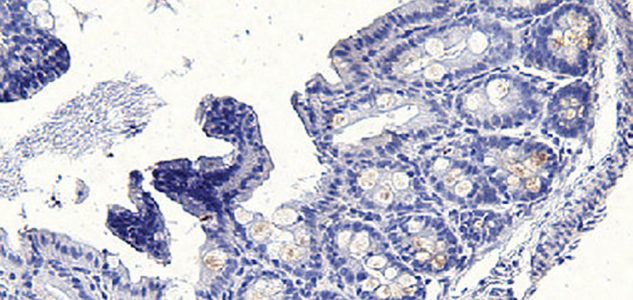Food-poisoning bacteria may be behind Crohn’s disease

October 12, 2016
People who retain a particular bacterium in their gut after a bout of food poisoning may be at an increased risk of developing Crohn’s disease later in life, according to a new study led by researchers at McMaster University.
Using a mouse model of Crohn’s disease, the researchers discovered that acute infectious gastroenteritis caused by common food-poisoning bacteria accelerates the growth of adherent-invasive E. coli (AIEC) – a bacterium that has been linked to the development of Crohn’s.
Even after the mice had eliminated the food-poisoning bacteria, researchers still observed increased levels of AIEC in the gut, which led to worsened symptoms over a long period of time.
The study, published in the journal PLOS Pathogens, was funded by grants from the Canadian Institutes of Health Research and Crohn’s and Colitis Canada.
Crohn’s disease is a debilitating bowel disease characterized by the inflammation of the intestines. Today, one in every 150 Canadians is living with Crohn’s or colitis, a rate that ranks among the highest worldwide.
“This is a lifelong disease that often strikes people in their early years, leading to decades of suffering, an increased risk of colorectal cancer, and an increased risk of premature death,” said Brian Coombes, senior author of the study. At McMaster University he is a professor of biochemistry and biomedical sciences and a researcher at the Michael G. DeGroote Institute for Infectious Disease Research.
The study’s results, said Coombes, means that new diagnostic tools should be developed to identify AIEC-colonized individuals who may be at greater risk for Crohn’s disease following an episode of acute infectious gastroenteritis.
“We need to understand the root origins of this disease – and to use this information to invigorate a new pipeline of treatments and preventions. It has never been more pressing.”


